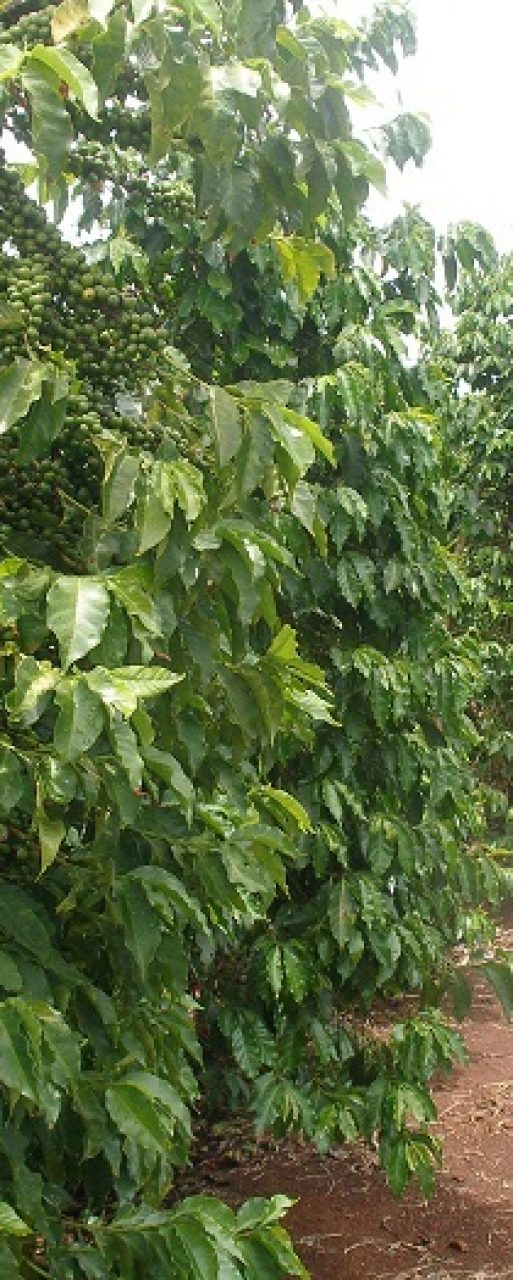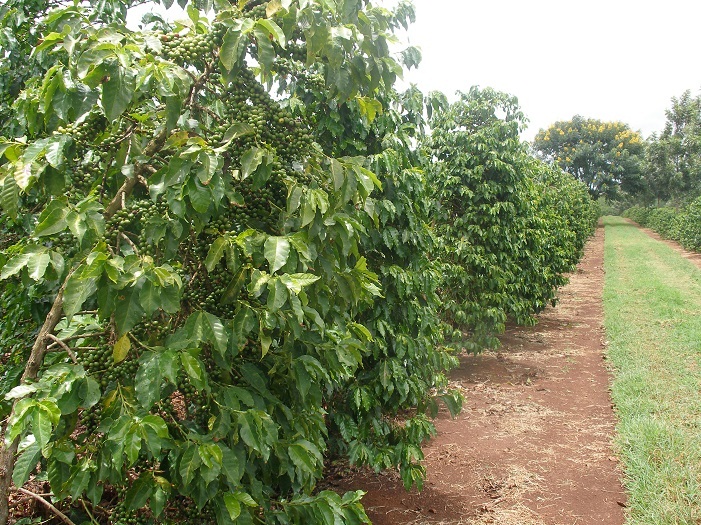Omex Calmax stengthens coffee tissue increasing resilience to disease and reducing berry drop
Coffee whether the long-established Kenyan Arabica origins or more recent provenances from Vietnam, the world’s leading exporter of Robusta coffee, is frequently cultivated on moderately acid soils within the pH 5-6 range.
Liming with calcium-rich materials including limestone, dolomite, marl, chalk and hydrated lime is widely practised to raise soil pH and thereby reduce acidity, while incidentally supplementing soil calcium.
Calcium is a crucially important structural component of coffee berries, cherry and beans as a constituent of calcium pectate which cements cell walls together. The calcium nutrient displays inherently poor mobility made worse by soil ‘lock-down’ caused by calcium reacting with phosphorous to form insoluble, plant-unavailable calcium phosphate.
Liming may inadvertently exacerbate the situation. As pH rises towards neutral (pH 7) and beyond into alkaline territory the reaction between calcium and phosphorous accelerates. Growers may therefore achieve the desired reduction in soil acidity but simultaneously aggravate calcium availability to growing coffee.
Any shortfall in the calcium nutrition of coffee plants may impact on vegetative growth and reduce yield of coffee cherry, while increasing frequency of primary bean defects and secondary damage caused mechanically or by insect pests.
Omex Agrifluids the United Kingdom-based formulator and exporter of innovative, high quality, soluble plant nutrients (in liquid and powder delivery systems) has the answer in a product which is rich in soluble calcium and applied by foliar spraying as an integral part of the Omex foliar-feeding programme for coffee.
“Foliar application of Omex Calmax containing 22.50% Ca (Wt/Vol) avoids potential lock-down of calcium in the soil,” says Export Director Peter Prentis. He points to recent results from Omex-funded research carried out on coffee in Vietnam. The results demonstrate a range of benefits from foliar application of Omex Calmax.
Omex Calmax applied at three different rates was compared with the standard non-Omex calcium-containing product used on the estate. Improvements in growth of coffee bushes and yield and quality of the coffee harvest included:
- Higher coffee cherry and bean yields per tree
- Increased branch extension growth
- Higher bean quality as measured by bean size
- Reduced frequency of green coffee bean defects including black, mouldy and broken beans
“Some coffee growing areas in Vietnam have inherently low pH soils, so enhanced cell and tissue strength afforded by the extra calcium, and translating into lower levels of berry disease with reduced berry drop and fungicide usage, offers exciting opportunities for farmers using Omex Calmax,” says Peter Prentis.
“Much of the Arabica coffee produced in Kenya is grown on moderately acidic soils within the pH 5-6 range says Omex Regional Director Alan Lowes. Liming during the growing season is common practice in areas of low soil pH and there is concern that soil acidity is increasing in some areas of Kenya. “Application of Omex Calmax containing soluble calcium can avoid the deficiencies commonly caused by ‘lock-up’ of soil calcium,” says Alan Lowes.
Coffee beans are not especially rich in nutrients. Eight fluid ounces (227 ml) of ground and brewed coffee will normally provide 5 mg of calcium. However, there is a specific reason why the calcium content of coffee beans should be boosted to the highest possible level. Well-established research shows an inhibitory effect of caffeine on the absorption of calcium by the human gut. And sufficiently significant to cause potential problems for coffee drinkers in the higher age groups whose ability to absorb calcium may already be low.
Further information and details from:
Peter Prentis (Export Director) and Alan Lowes (Regional Director): Omex Agrifluids. Saddlebow Road, King’s Lynn, Norfolk, PE34 3JA, United Kingdom. Telephone: +44 1553 817500. Fax: +44 1553 817501.








